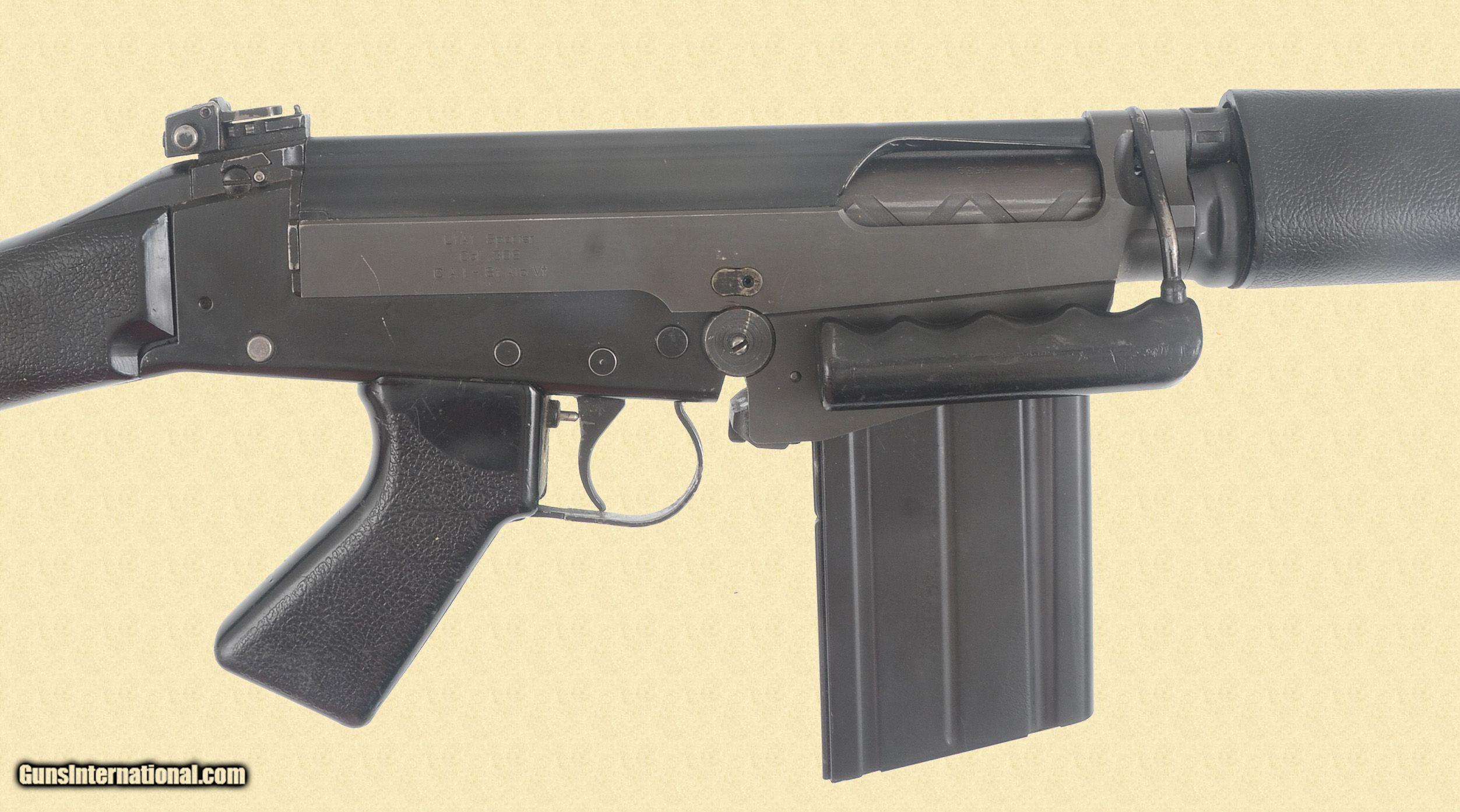Particulars: 1. Pre-ban L1A1 2. Imported Prior To 1968 Gun Control Act 3. Absolutely NO IMPORT MARKINGS 4. ALL MATCHING NUMBERS 5.
Century imported surplus L1A1 questions. Information on the century arms imported surplus British L1A1's from. With mismatched body/TMH serial numbers.
Contains proof arrow marks on lower receiver in correct position 6. Has crossed flag emblem & crest on lower front receiver @ mag well. Finish is original and approximately 95% 8. Less than 100 rounds fired 9.
Serial number begins with the letters 'AD' Accessories: 1. An additional complete set of unissued British Coachwood furniture 2. Original Aussie bayonet with scabbord 3. 1 new un-issued semi selector 4. 5 - 20 round inch pattern mags 5.
1 - 30 round Austrailian mag This is an Austrailian Defense Sear Cut L1A1 and it is my understanding (from what I have been told by others) that these particular FALS (L1A1) are mostly sought after by collectors in that they DO NOT contain any importation markings and that there were approximately 125 of these that made it into the country prior to the importer stampings that were then required by the 1968 Gun Control Act. Is this then considered to be one of those high dollar L1A1's and if so can anyone give me any approximate figures on its value. Thank you for your time and assistance. Thanks for your input here guys. Keygen generator download.


I'm not even sure where (or what) to look for to see if this is a Lithgow at this time unless someone can point me in that direction. I did see one similiar to this one (that was in worst shape) go for $4700 at a gun show last year but then the seller and buyer may simply have just been at the right place at the right time for each other. It actualy belongs to a close friend of mine and there are a few inquiries regarding it by some collectors but he is not looking to get that much for his. My friend does not have a computer and wants me to list it for him at various locations but I don't want to misrepresent anything so before I do that I thought I would ask some of the pros. Thanks for your help Six. I believe that the Australian Army, during the mid-'50's to late-'80's, was mostly armed with L1A1s (license-built versions of the FN-FAL) built at the Lithgow Arsenal in New South Wales, Australia.
I've heard that early on, just after adopting the L1A1, they were armed with British made ones (made at the Royal Small Arms Factory in Enfield and at BSA-Birmingham Small Arms) until production at Lithgow was up and running. Here's what the Standard Catalog of Military Firearms has on the L1A1 under the 'Australia' heading: 'L1A1 Rifle This is the British version of the FN-FAL in the 'inch' or Imperial pattern.
Most of these rifles were semiautomatic only. Thes rifle was the standard service rifle for the British Army from about 1954 to 1988. The rifle was made in Lithgow, Australia under license from FN. The configurations for the L1A1 are the same as the standard FN-FAL Belgium rifle.
Only a few of these rifles were imported into the U.S. They are very rare. This 'inch' pattern British gun will also be found in other Commonwealth countries such as Australia, New Zealand, Canada, and India. NOTE: Only about 180 Australian L1A1s were imported into the U.S. Prior to 1989.
These are rare and in great demand. - $4500' Here's a bit more info about the L1A1 I found on the internet: I'm not really sure if the Lithgow L1A1s were marked in any specific way to differentiate them from the RSAF or BSA made ones.
I should imagine they were, but what those markings are, I don't know. Are there any proof marks on your rifle? The AD at the beginning of the serial number says it was built at Lithgow, and, as that was the only point of manufacture, with that prefix, confirms the aussie origin. The '125 or so' rifles of which you speak probably was about 200, and were marked with a prefix of SAF82, or SAF83, and stamped as Rifle.L1A1A. Most were inported by Joe Poyer, in 83, before the ATF realised, apparently, how easily the could be converted to selective fire.